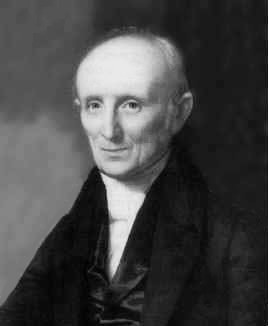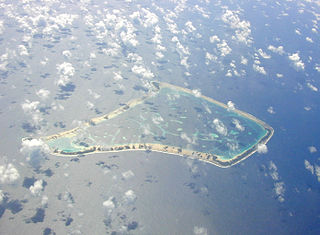Related Research Articles

Navigation is a field of study that focuses on the process of monitoring and controlling the movement of a craft or vehicle from one place to another. The field of navigation includes four general categories: land navigation, marine navigation, aeronautic navigation, and space navigation.

Salem is a historic coastal city in Essex County, Massachusetts, United States, located on the North Shore of Greater Boston. Continuous settlement by Europeans began in 1626 with English colonists. Salem would become one of the most significant seaports trading commodities in early American history.

A buoy is a floating device that can have many purposes. It can be anchored (stationary) or allowed to drift with ocean currents.

Nathaniel Bowditch was an early American mathematician remembered for his work on ocean navigation. He is often credited as the founder of modern maritime navigation; his book The New American Practical Navigator, first published in 1802, is still carried on board every commissioned U.S. Naval vessel. In 2001, an elementary and middle school in Salem was named in his honor.

In meteorology, Buys Ballot's law may be expressed as follows: In the Northern Hemisphere, if a person stands with their back to the wind, the atmospheric pressure is low to the left, high to the right. This is because wind travels counterclockwise around low pressure zones in the Northern Hemisphere. It is approximately true in the higher latitudes of the Northern Hemisphere, and is reversed in the Southern Hemisphere, but the angle between the pressure gradient force and wind is not a right angle in low latitudes.

Fakaofo, formerly known as Bowditch Island, is a South Pacific Ocean atoll located in the Tokelau Group. The actual land area is only about 3 km2, consisting of islets on a coral reef surrounding a central lagoon of some 45 km2. According to the 2006 census 483 people officially live on Fakaofo. Of those present 70% belong to the Congregational Church and 22% to the Catholic Church.

A cross sea is a sea state of wind-generated ocean waves that form nonparallel wave systems. Cross seas have a large amount of directional spreading. This may occur when water waves from one weather system continue despite a shift in wind. Waves generated by the new wind run at an angle to the old.


Carry On, Mr. Bowditch is a novel by Jean Lee Latham that was awarded the Newbery Medal in 1956.

The Nathaniel Bowditch House, sometimes called the Bowditch-Osgood House and the Curwen-Ward-Bowditch House, is a historic house and National Historic Landmark at 9 North Street in Salem, Massachusetts. With a construction history apparently dating to 1759–60, the house is distinctive as having been owned by three families important in the maritime history of Salem. Its landmark designation in 1965 stems from its association with Nathaniel Bowditch (1773–1838), the founder of modern navigation, who lived here from 1811 to 1823. The house now serves as the headquarters of Historic Salem, Inc., which was responsible for its rescue from demolition and eventual restoration.

In celestial navigation, lunar distance, also called a lunar, is the angular distance between the Moon and another celestial body. The lunar distances method uses this angle and a nautical almanac to calculate Greenwich time if so desired, or by extension any other time. That calculated time can be used in solving a spherical triangle. The theory was first published by Johannes Werner in 1524, before the necessary almanacs had been published. A fuller method was published in 1763 and used until about 1850 when it was superseded by the marine chronometer. A similar method uses the positions of the Galilean moons of Jupiter.

William Taylor Adams, pseudonym Oliver Optic, was an academic, author, and a member of the Massachusetts House of Representatives.

Radar navigation is the utilization of marine and aviation radar systems for vessel and aircraft navigation. When a craft is within radar range of land or special radar aids to navigation, the navigator can take distances and angular bearings to charted objects and use these to establish arcs of position and lines of position on a chart. A fix consisting of only radar information is called a radar fix.

Charles Gibbs was the pseudonym of an American pirate, born James D. Jeffers. Jeffers was one of the last active pirates in the Caribbean during the early 19th century, and was among the last persons to be executed for piracy by the United States.

The East India Marine Society of Salem, Massachusetts, United States, was "composed of persons who have actually navigated the seas beyond the Cape of Good Hope or Cape Horn, as masters or supercargoes of vessels belonging to Salem." It functioned as a charitable and educational organization, and maintained a library and museum. It flourished especially in the 1800s–1830s, a heyday of foreign trade.
This is a timeline of the history of the city of Salem, Massachusetts, United States.

Kimberley Lord Driscoll is an American politician and lawyer who has served as the 73rd lieutenant governor of Massachusetts since 2023. A member of the Democratic Party, Driscoll previously served as the 50th mayor of Salem from 2006 to 2023. Before becoming mayor, Driscoll served as an elected member of the Salem City Council and worked as the deputy city manager and chief legal counsel for the city of Chelsea.

Richard Saltonstall Rogers was an early American shipping merchant and was possibly the inspiration for a character in Nathaniel Hawthorne's The Scarlet Letter.
Louise Hall Tharp (1898–1992) was an American biographer.

Micronesian navigation techniques are those navigation skills used for thousands of years by the navigators who voyaged between the thousands of small islands in the western Pacific Ocean in the subregion of Oceania, that is commonly known as Micronesia. These voyagers used wayfinding techniques such as the navigation by the stars, and observations of birds, ocean swells, and wind patterns, and relied on a large body of knowledge from oral tradition. These navigation techniques continued to be held by Polynesian navigators and navigators from the Santa Cruz Islands. The re-creations of Polynesian voyaging in the late 20th century used traditional stellar navigational methods that had remained in everyday use in the Caroline Islands.
References
- ↑ Dietrich-Berryman, Eric; Hammond, Charlotte E.; White, Ronald E. (2010-10-15). Passport Not Required: U.S. Volunteers in the Royal Navy, 1939-1941. Naval Institute Press. pp. 118–119. ISBN 978-1-61251-385-0.
- 1 2 3 "Alfred Stanford; Milford Citizen's retired publisher". The Day. 1985-02-15. p. 45. Retrieved 2023-10-04.
- ↑ "A memorial service will be held Saturday for Alfred... - UPI Archives". UPI. Retrieved 2023-10-04.
- ↑ "The Ground Swell". San Francisco Chronicle. 1923-07-15. p. 5. Retrieved 2023-10-04.
- ↑ "Story Starts Well; Collapses Near End". The Fresno Bee. 1923-03-10. p. 8. Retrieved 2023-10-04.
- ↑ "Alfred Stanford Writes Interesting Adventure Tale". The Tennessean. 1924-08-10. p. 35. Retrieved 2023-10-04.
- ↑ "A City Out Of Sea; A Powerful Romance Of Love And Hate". The Fresno Bee. 1924-08-23. p. 16. Retrieved 2023-10-04.
- ↑ "Power Of Sea Felt In Pages Of Late Book". Salt Lake Telegram. 1924-08-17. p. 3. Retrieved 2023-10-04.
- ↑ ""Navigator," the Story of Nathn'l Bowditch, of Salem". The Philadelphia Inquirer. 1927-10-01. p. 16. Retrieved 2023-10-04.
- ↑ "Romantic Story of the Life of Nat Bowditch". The Boston Globe. 1927-10-01. p. 6. Retrieved 2023-10-04.
- ↑ "'The Navigator' Relates Life Story of Nathaniel Bowditch, Who Improved Sea Travel". Star Tribune. 1927-12-25. p. 39. Retrieved 2023-10-04.
- ↑ Stetson, H. T. (1928). "Review of Navigator. The Story of Nathaniel Bowditch of Salem". The New England Quarterly. 1 (2): 255–257. doi:10.2307/359775. ISSN 0028-4866. JSTOR 359775.
- ↑ "A Romance of the Yankee Clipper Fleet". The Pasadena Post. 1929-09-28. p. 5. Retrieved 2023-10-04.
- ↑ "Adventure on Cape Cod". The News Journal. 1930-06-07. p. 7. Retrieved 2023-10-04.
- ↑ "Flag in the Wind". Clarion-Ledger. 1930-06-01. p. 8. Retrieved 2023-10-04.
- ↑ "The Daily Book Review: Men, Fish and Boats, by Alfred Stanford". The Dayton Herald. 1934-06-01. p. 18. Retrieved 2023-10-04.
- ↑ "Thrills of Sailing". Hartford Courant. 1943-03-28. p. 77. Retrieved 2023-10-04.
- ↑ "'Force Mulberry' Is One Of Finest War Books–Dramatic And Inspiring". Denton Record-Chronicle. 1951-11-16. p. 5. Retrieved 2023-10-04.
- ↑ Greene, Joseph I. (1952-01-06). "Harbors on the Beach; FORCE MULBERRY. By Commander Alfred Stanford, U. S. N. R. Introduction by Samuel E. Morison. Illustrated with photographs. 240 pp. New York: William Morrow & Co. $3.50". The New York Times. ISSN 0362-4331 . Retrieved 2023-10-04.
- ↑ Colby, Elbridge (1953). "Review of Force Mulberry". Military Affairs. 17 (3): 145. doi:10.2307/1982676. ISSN 0026-3931. JSTOR 1982676.